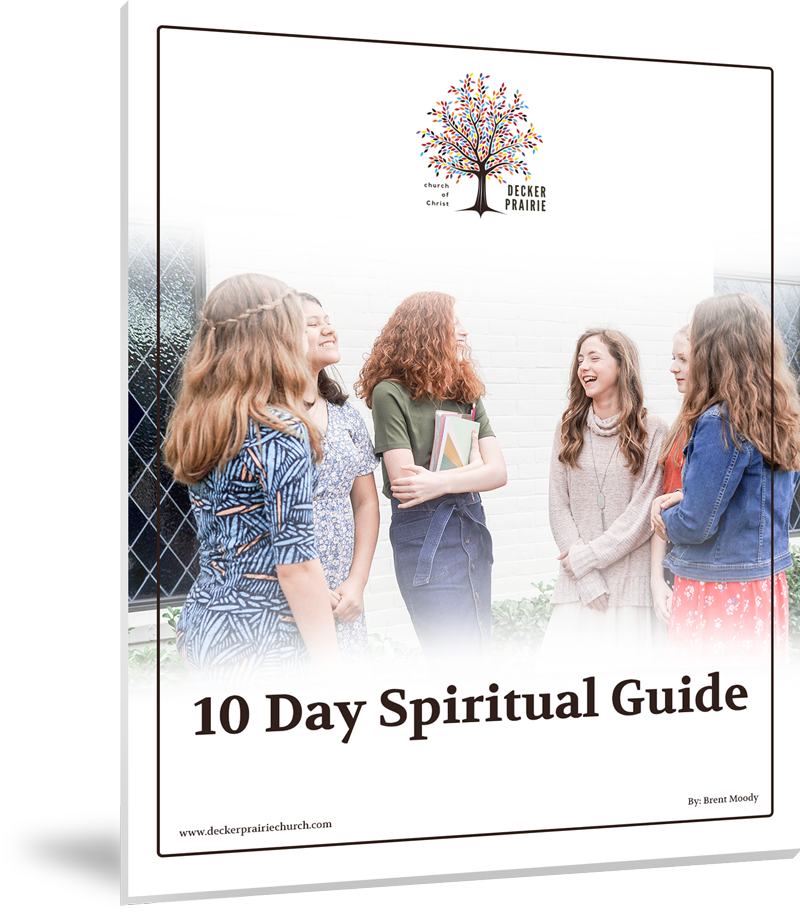What’s similar between these two texts:
Religious practices related to diet and holy days
Don’t cause to stumble /sin
Seek the good of others
Differences:
Romans:
Jews vs Gentiles
Focus on unity
Follow Christ’s example of welcoming one another
Corinthians:
Gentile vs. Gentile issues
Focused on the dangers of idolatry
Follow Paul’s example on freedoms
What’s at stake
The weak in Roman’s believe those who eat meat, and don’t celebrate holy days, are ignoring Gods will
The weak in 1 Cor. believe those who eat met sacrificed to idols are honoring idol gods
Thought question: Are the problems in these two books more or less serious than our problems? Depends, but these are very serious problems for them.
Definitions:
Weak – not a lesser Christian. Restricted by conscience
Strong – not a better Christian. Their conscience grants them liberty
Stumbling block – context is “causing occasion to sin.” It is not being offended by beliefs different from my own. It isn’t just not liking something and thinking others shouldn’t like it too. If there is a provable doctrinal issue that is a different matter.
Encouraged – the strong should not coerce the weak to act contrary to their conscience
Weak in faith – int the context “faith” is not saving faith, but what people believe.
Three scenarios in 1 Cor. 8 & 10:
- Eating at idol temples – not wrong but unwise, 8:10. An ex-pagan may be tempted to eat and violate their conscience; You may be more influenced than you think (flee idolatry); your fellowship is with Christ’s body sharing meals at his table. Don’t have fellowship with demons at the table of demons (10:6-17, 20-21).
- Eating sacrificial meat at the market, – do it! 10:25-16
- Eating meat at an unbelievers home – eat anything unless they mention it was a sacrifice (10:27-28)
Rom. 14:3- “let not the one who eats despise the one who abstains; and let not the one who abstains pass judgment on the one who eats, for God has welcomed him. “. The applications which follow will come from this verse.
Applications:
- Do not despise your brother – Rom. 14:3. Do not look down on them because their opinion is different than yours. Repeated in verse 10. Arrogance seems to be a major problem in Corinth. And, if you’re not considering your brother, you’re not walking in love. We get caught up in is it sin or isn’t it while we should be concerned with is it wise or isn’t it.
- Do not pass judgment, the other side of this. Rom. 14:3. Again, he repeats it in verse 10. Be careful in matters of opinion that we do not pass judgment. We may be thinking something is sin and it is not. My conscience could be wrong. These were major issues in Corinth. Assume the best! Do we always do that? In the text, it says they’re both honoring God. They all want to serve Him. They all want to honor Him.
- Welcome one another. This is the culmination of the teaching here. Rom. 13:3- “God has welcomed him.” If there is ever a warning to be careful,this is it.
Psalm 69:6 – what David is saying is do not let anyone who is seeking the Lord be discouraged.
Sermon by Brent Moody


